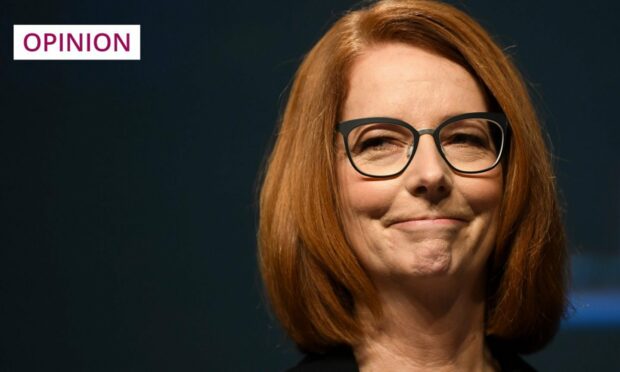We have the evidence and the policies to make the world better for everyone, writes James Millar, and it starts with making childcare more equal.
It’s a particular skill to effectively combine anger and eloquence.
Plenty of politicians can summon the former without the latter. The latter without the former can all too easily be characterised as flannel and windbaggery.
It’s why Julia Gillard’s famous misogyny speech stands the test of time. Earlier this month, the former Australian prime minister was interviewed in London by historian Mary Beard to mark a decade since the landmark speech occurred.

Australia’s first, and so far only, female PM endured a particularly distasteful time while in power at the hands of men who saw no issue with chanting things like “ditch the witch” at her public appearances.
So, when her opponent Tony Abbott tried to weaponise sexism to destabilise her government, she turned the tables in spine-tingling fashion, telling him that if he “wants to know what misogyny looks like in modern Australia, he doesn’t need a motion in the House of Representatives, he needs a mirror”, before calling out his “repulsive double standards” and listing occasions on which he had exhibited appalling sexism.
Her words echoed around the world, emboldening anyone fed up with inequality.
Watching the video today, it still resonates with the power of the very best political speeches down the ages. It has even inspired a new generation to pay homage on TikTok.
Gender equality would unlock $30 trillion in global GDP
Following her conversation with Beard, Gillard was asked about the definition of a woman, and invited to wade into the controversy currently bedevilling the SNP and the Scottish Parliament, around gender and self-identification. She wisely warned against getting caught in culture wars that generally benefit conservative forces, preferring instead to focus on “generating maximum inclusion”.
And it was with a view to inclusion that she appeared at another event around International Men’s Day last week, looking at how gender equality benefits everyone, and what steps men can take towards that goal.
The panel of experts from industry and academia that she chaired tackled the first part with ease, backed by some staggering statistics. For example, in around 180 countries, women are excluded from the workforce in some way.
There are only 195 countries in the world. So, perhaps it’s not that surprising that achieving gender equality would unlock $30 trillion in global GDP. That would be good for everyone at any time, but particularly in light of the economic shocks rocking the globe.
When it comes to achieving the gender equality that would make us all richer and enrich our existence, there is much for men to do. And doing, rather than just speaking, is what matters.
We know the answers to these problems
One questioner called out the panel for talking a good game on equality, but noted that none of the companies or institutions they represented had a policy of equal parental leave.
Men and women bowl along through life until children intervene and the gender pay gap opens up
For this is where the answer lies.
Men and women bowl along through life until children intervene and the gender pay gap opens up, the mental load tilts decisively towards women, and men are locked out of the caring roles many of them crave.
The worst and weirdest thing is that we know the answers to these problems. We can see many of them in practice in Scandinavia.
First of all, we need parental leave policies that are levelled up, allowing mums and dads to share childcare in the home as they see fit. Secondly, we need an out-of-home childcare system that is accessible and affordable, so that those who want to work can.
Currently, there’s plenty of talk of energy bills surpassing mortgage costs, but childcare expenses are invariably in the mix too, to take the largest chunk of any given family’s income.
Childcare is infrastructure
The UK is fingered for its poor productivity. How much more focused could parents be if they weren’t giving over mental energy to figuring out which grandparent can look after their toddler for the day, or working out a route home that won’t incur the dreaded 6pm fines nurseries impose for late pick-up?
Put simply, childcare is infrastructure. If the government was serious about growth, about swelling GDP, and about creating a positive future for the nation, they would grasp that.
Instead, sandwiched between Julia Gillard’s two public events was a fiscal event during which Chancellor Jeremy Hunt neglected to mention childcare once. The Treasury talks up roads, railways, bridges and buildings – things that are long and straight and thrust through the nation or into the sky. The very definition of winkie-structure, instead of redefining infrastructure.
Ten years on from Julia Gillard’s iconic misogyny speech, she is still leading the discussion around gender equality, why it matters and how to achieve it.
Much has improved in the past decade. We have the evidence and the policies to make the world better for everyone. The government that goes there doesn’t need to be brave or imaginative, they just have to be sensible and fair.
James Millar is a political commentator, author and a former Westminster correspondent for The Sunday Post




Conversation